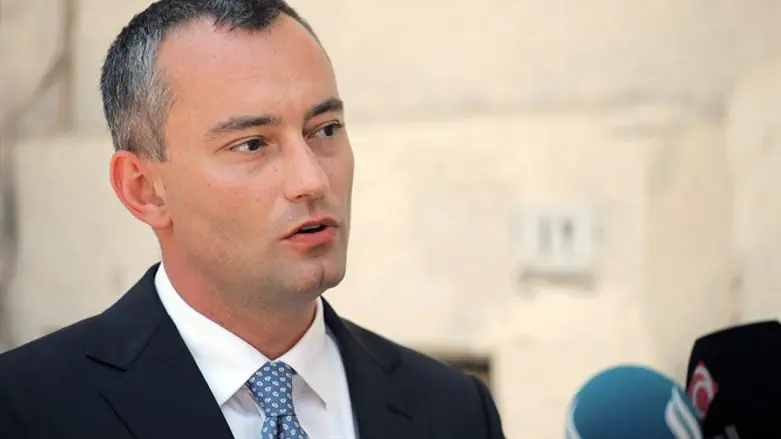
The United Nations envoy to the Middle East, Nikolay Mladenov, claimed that, despite US wishes, there is no real possibility that Israel will normalize relations with Arab states before a comprehensive agreement with the Palestinian Arabs.
In a conversation with reporters, Mladenov said that "It is impossible to skip over the heads of the Palestinians and work for peace only with the Arab states."
He added that, in his opinion, "confidence-building measures should be taken to allow the sides to enter talks and deal with the core of the conflict."
On Thursday, he will attend a first meeting of the Middle East Quartet with US special envoy to the Middle East, Jason Greenblatt.
Mladenov himself has already met with Greenblatt recently, and told him that it is necessary to act in a slow and calculated manner in order to create an atmosphere that will allow the resumption of diplomatic talks.
As a representative of the United Nations, he was critical of the conduct of both sides: "The rise in construction during the last six months is worrisome. I understand the political and coalition situation that needs to be dealt with, but the result does not help create an atmosphere that will support talks.” In the case of the Palestinian Arabs, it is the incitement that worried Mladenov. “They need to deal with the increasing incitement. We hear about support for terror and the naming of centers after terrorists.”
He rejected claims often heard in Israel about the UN’s discriminatory stance against Israel. "Israel makes a lot of claims, but there is a good working relationship with the UN and the Secretary-General, and we are interested in protecting them," he said.
Mladenov also referred to what is happening in the Gaza Strip, asserting that there is a serious deterioration in the humanitarian situation there that could harm Israel from a security standpoint. "The situation in Gaza will eventually reach Israel's doorstep, and we feel a serious deterioration in the humanitarian situation there in the last three months."
He mentioned the electricity crisis, but noted that the solution was not connected to Israel but to internal Palestinian Arab agreements that had to be made.
